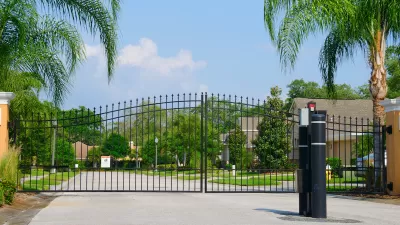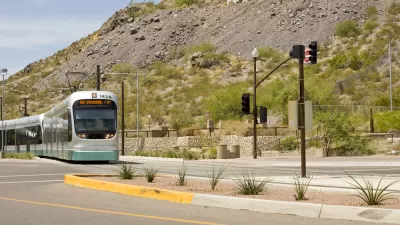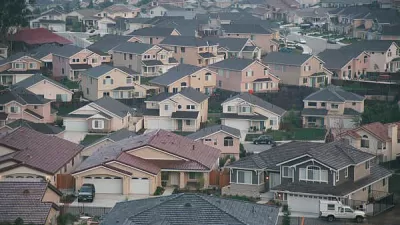Gated communities were once confined to specific neighborhoods or suburban areas, but as the global financial sector grows, entire cities are becoming gated enclaves where the 'one per cent' network and drive national policies, says Simon Kuper.
With the help of sociologist Saskia Sassen, Kuper traces the transformation of great global cities such as London, Paris, and New York from destitution four decades ago to their unprecedented desirability. "[F]rom the 1980s, these cities recovered. An increasingly complex financial sector needed more sophisticated networks of lawyers and accountants. Corporate mergers and takeovers meant global headquarters got concentrated in fewer places. Crime declined, making cities less scary. And so great cities grew richer. Fancy architects put up lovely buildings. House prices rose."
"First, the working classes and bohemians were priced out," he notes. "That was gentrification. Now comes plutocratisation: the middle classes and small companies are falling victim to class-cleansing. Global cities are becoming patrician ghettos."
"Global cities are turning into vast gated communities where the one per cent reproduces itself," argues Kuper. "Elite members don’t live there for their jobs. They work virtually anyway. Rather, global cities are where they network with each other, and put their kids through their country’s best schools."
FULL STORY: Priced out of Paris

Alabama: Trump Terminates Settlements for Black Communities Harmed By Raw Sewage
Trump deemed the landmark civil rights agreement “illegal DEI and environmental justice policy.”

Planetizen Federal Action Tracker
A weekly monitor of how Trump’s orders and actions are impacting planners and planning in America.

Why Should We Subsidize Public Transportation?
Many public transit agencies face financial stress due to rising costs, declining fare revenue, and declining subsidies. Transit advocates must provide a strong business case for increasing public transit funding.

Understanding Road Diets
An explainer from Momentum highlights the advantages of reducing vehicle lanes in favor of more bike, transit, and pedestrian infrastructure.

New California Law Regulates Warehouse Pollution
A new law tightens building and emissions regulations for large distribution warehouses to mitigate air pollution and traffic in surrounding communities.

Phoenix Announces Opening Date for Light Rail Extension
The South Central extension will connect South Phoenix to downtown and other major hubs starting on June 7.
Urban Design for Planners 1: Software Tools
This six-course series explores essential urban design concepts using open source software and equips planners with the tools they need to participate fully in the urban design process.
Planning for Universal Design
Learn the tools for implementing Universal Design in planning regulations.
Caltrans
Smith Gee Studio
Institute for Housing and Urban Development Studies (IHS)
City of Grandview
Harvard GSD Executive Education
Toledo-Lucas County Plan Commissions
Salt Lake City
NYU Wagner Graduate School of Public Service





























